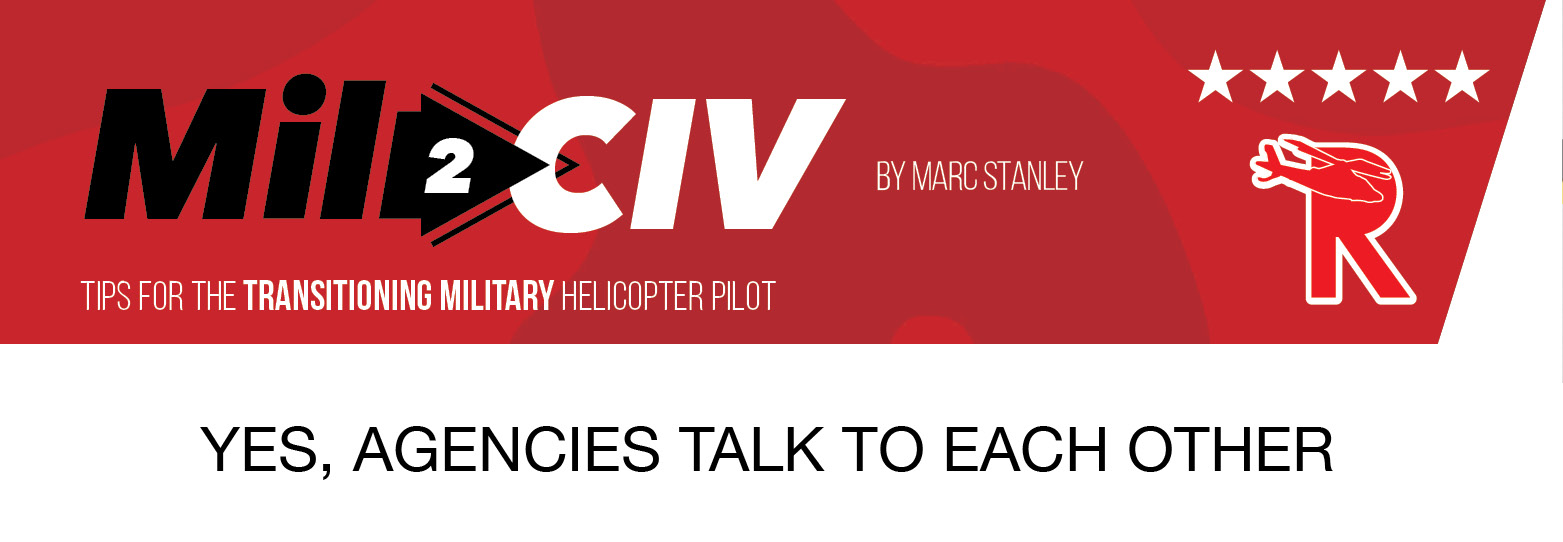|
Feb
14
2023
|
|
Posted 3 years 1 days ago ago by Admin
|
|

In the past, some former military pilots have neglected to be honest when reporting they receive a Veterans Administration (VA) disability payment on their FAA FORM 8000-9, commonly known as the FAA medical application. Specifically, question 18Y that asks the applicant if they receive “medical disability benefits.” According to the FAA this means: “The applicant must report any disability benefits received, regardless of source or amount.” More specifically, it means whether you have ever received disability benefits, not only if you are currently receiving them.
The problem is that many military pilots look at their VA payment as compensation for their service, which is incorrect; they are being paid for disabilities received during military service. The Guide for Aviation Medical Examiners states that if you check yes in block 18Y, the FAA may verify with other federal agencies (i.e., Social Security Administration and Veterans Affairs) whether the applicant is receiving a disability benefit that may present a conflict in issuing an FAA medical certificate. This has always been the case, but why the emphasis now, when it wasn’t scrutinized as much before?
In 2015, a German copilot flying for a German airline that suffered from severe depression locked the pilot-in-command out of the cockpit when he got up to use the bathroom. The copilot then crashed the plane into the Alps, killing himself, along with 149 passengers and crew. The incident was ruled “suicide by airplane.”
In the aftermath of this event, the FAA took a deeper dive into the mental health of American pilots resulting in the federal grand jury indictments of four pilots that had neglected to state they were receiving VA disability for PTSD, depression, anxiety, and depression. In the past two years, other pilots have been fired from various U.S. airlines for failing to disclose disability benefits they are receiving for mental health and other reasons.
Failing to disclose VA disability benefits on your FAA medical application could potentially be a big problem. The penalty for lying on your medical application is usually revocation of the pilot’s medical certificate, pilot certificates and type ratings, and any other certificates held by the individual (i.e., airframe & powerplant). The FAA normally accepts reapplying after 12 months, but only as a student pilot, then it’s up to the FAA to determine if you can pursue other qualifications after that. To be clear, you will not get your old ratings back. You will have to requalify for them. However, a recent trend for failing to disclose VA disability benefits on your FAA medical application includes criminal referral and indictment for violation of 18 U.S.C. § 1001, and if found guilty you can serve up to five years in prison, plus fines.
If you are someone that has failed to disclose you receive VA disability benefits, it’s not all doom and gloom. The FAA usually gives amnesty to pilots that self-report their failure to disclose their disabilities before it is discovered by the FAA. However, the FAA may not grant amnesty either.
The FAA will approve most conditions for which you are receiving compensation, to include PTSD, migraines, and sleep apnea. I highlight these three because this is what the four U.S. pilots were indicted for. There are many veterans who hold medical certificates with the FAA, despite receiving VA benefits. While every case is different, the FAA typically considers a pilot’s current mental health status, whether he/she requires ongoing treatment for symptoms, and the pilot’s level of risk for recurrence of PTSD symptoms. This is the case for sleep apnea as well. As long as you are using your device and getting tested regularly, there shouldn’t be an issue. Migraines depend on how severe and often you have them. PTSD is the fourth most common disability claimed, followed by migraines (ninth highest) and sleep apnea (twelfth highest). Tinnitus is the most claimed disability.
To be clear, I am not telling you to call the FAA today if you find yourself in this situation. I am only providing this information for your enlightenment. It’s your career. However, if you do find yourself in this situation, I suggest contacting an aviation lawyer for guidance in advance of contacting the FAA. In closing, I contacted the FAA about this article but did not hear back from them.
About the author: Marc Stanley retired from the U.S. Army in 2015 after 26 years, and transitioned into civilian life to become a corporate pilot flying the AW139. He regularly teaches military-to-civilian transition classes at industry events, and volunteers with veterans outreach programs.
READ MORE ROTOR PRO NOV/DEC ISSUE
READ MORE ROTOR PRO: https://justhelicopters.com/Magazine
WATCH ROTOR PRO YOUTUBE CHANNEL: https://buff.ly/3Md0T3y
You can also find us on
Instagram - https://www.instagram.com/rotorpro1
Facebook - https://www.facebook.com/rotorpro1
Twitter - https://twitter.com/justhelicopters
LinkedIn - https://www.linkedin.com/company/rotorpro1